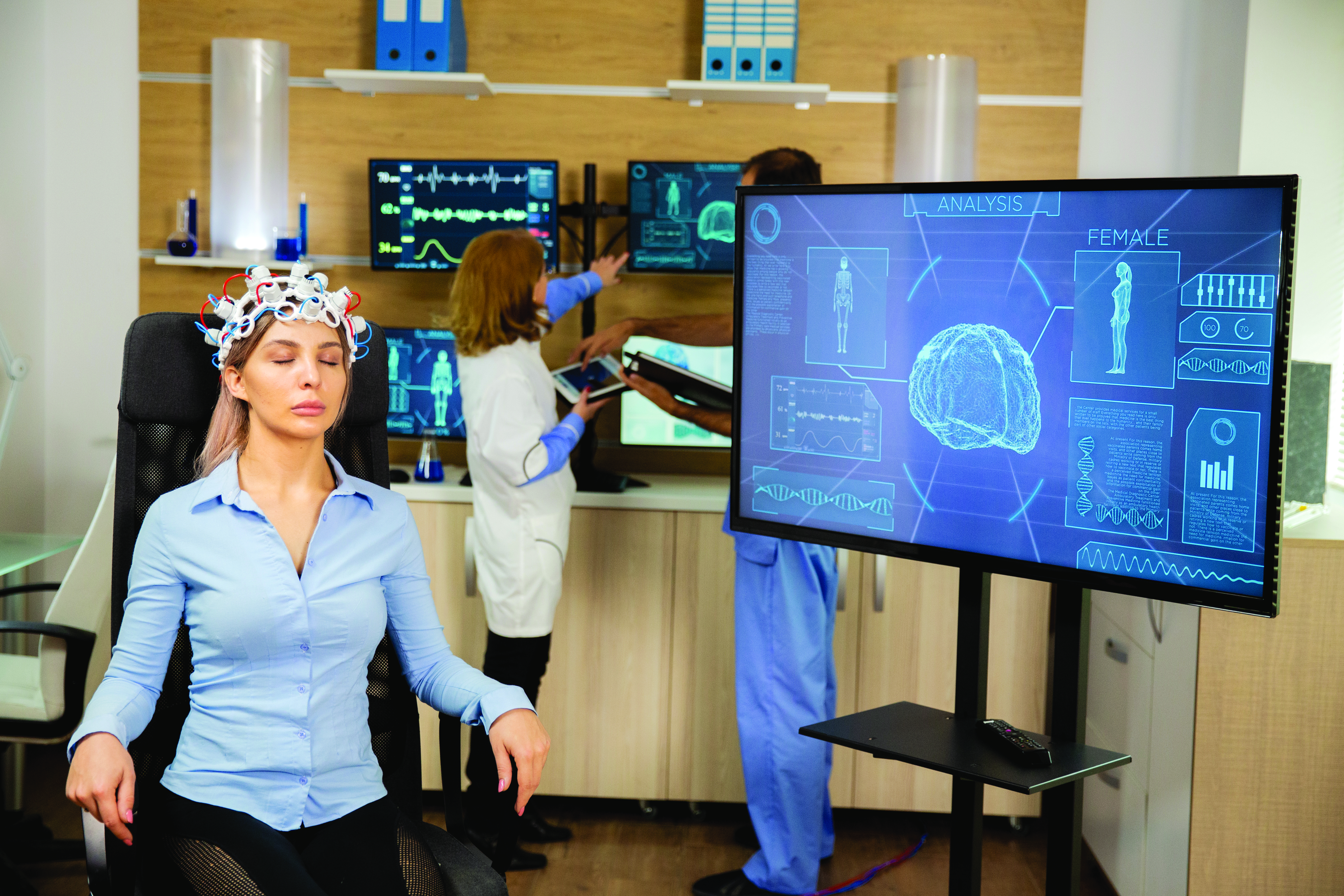AI in healthcare: Faster, better & smarter
AI is revolutionising healthcare, bringing in innovative methods to improve patient care, diagnostics, treatment & administrative processes

Just a few days ago, Elon Musk announced Neuralink, his brain implant company, has achieved a significant milestone by successfully implanting a brain chip into a human. This revolutionary brain-computer interface (BCI) implant could help disabled people walk and restore sight for the visually impaired. Cancer is a major global issue, and Freenome, a biotech company, strives to detect cancer in its earliest stages. Also, top hospitals are now using robots for spinal and knee surgeries, with doctors finding the results impressive. Artificial intelligence (AI) is transforming healthcare, revolutionising how we diagnose, treat, and monitor patients. IBM’s Watson started this journey, and now, tech giants like Apple, Microsoft, and Amazon are also heavily investing in AI for healthcare. As per Statista, AI in healthcare was worth $11 billion in 2021 and is expected to hit $188 billion by 2030, growing at 37% each year from 2022.
“AI is a game-changing innovation that has completely revolutionised the way we approach medicine. AI is globally playing a transformative role in streamlining processes within the healthcare system, leveraging advanced algorithms to drive efficiency, accuracy of treatment, along with clinical outcomes. In the context of healthcare, AI refers to using technology to mimic human cognitive functions such as reasoning and problem-solving to help in medical decision-making,” said Ayanabh Debgupta, Jt. Managing Director of a renowned hospital chain in eastern India.
Dr Siladitya Ray, a renowned psychiatrist and stress management expert in Kolkata, doesn’t mince his words when he said, “AI-driven medical technologies are evolving into viable solutions for clinical practice and reshaping the dynamics of medical practice. Relevant algorithms can deal with a colossal amount of data provided by wearables, smartphones, and other mobile monitoring sensors in different areas of medicine, which has already intruded into our lives in a big way.”
Clinical diagnosis
Roche Tissue Diagnostics (RTD) has teamed up with PathAI to create advanced AI algorithms for digital pathology. AI, especially in analysing big data and medical images such as X-rays, MRIs, ultrasounds and CT scans, is helping in making more accurate and faster diagnoses. “AI-powered CAD systems assist radiologists by detecting abnormalities in medical images such as X-rays, CT scans, and MRIs. These can be used for early cancer detection and more. AI can enhance image quality, automate measurements, and assist in detecting subtle abnormalities in ultrasound and radiology scans. AI algorithms can analyse pathology slides and identify anomalies, aiding pathologists in diagnosing diseases like cancer,” said Debgupta.
Virtual and personal health assistants
Forget the old days of waiting for a doctor to check your blood pressure. Now, with apps, and wearables, your vitals are constantly monitored. Virtual assistants handle admin tasks, like scheduling and billing, thus giving the doctors enough time to treat the patient. AI analyses data from wearables to keep an eye on your health remotely, catching problems early and cutting down on trips to the hospital.
Personalised medicine
AI in personalised medicine is like a personalised roadmap for health. By scrutinising a person’s DNA, medical history, and family background, AI precisely identifies issues. This detailed understanding allows for personalised treatments, taking into account individual needs, behaviours, and preferences. This approach also trims down healthcare costs. “Using patient data and other information, AI can help physicians and medical technologists deliver more accurate diagnoses and treatment protocols. Also, AI can help make healthcare more predictively accurate and proactive by analysing big data to develop improved preventive care strategizing treatment for patients,” said Dr Ray.
Robotic surgery
Robotic technology is making significant strides in healthcare, offering improved experiences for both surgeons and patients. Many surgeons consider robotic surgery to be revolutionary. “Robot-assisted surgery (RAS) is completely safe. It enables doctors to perform a range of complex procedures with greater precision, flexibility, and control than conventional methods. RAS also increases operational efficiency of a surgeon aiding to perform more procedures in a single day,” said Debgupta.
Drug discovery
AI is causing a revolution in clinical trials, independent verification, and speeding up drug development. “Traditional drug discovery is a notoriously time consuming and expensive process, with pre-clinical stages typically taking three to six years and costing hundreds of millions to billions of dollars. However, a host of AI tools are revolutionising nearly every stage of the drug discovery process, offering substantial potential to reshape the speed and economics of the industry,” wrote Harvard University. Debgupta echoed similar sentiments and said, “With the introduction of AI in drug discovery and development, scientists are developing better medicines faster, putting them on clinical trials and releasing them for treatment.”
Medical research
AI holds the potential to provide quicker and more accurate analyses, significantly improving our understanding of the evolution of diseases. “AI has revolutionised medical technologies and can be commonly understood as the part of computer science that is able to deal with complex problems with many applications in areas with huge amounts of data but little theory. The development of intelligent medical technologies is enabling the development of a new field in medicine: augmented medicine, i.e., the use of new medical technologies to improve different aspects of clinical practice,” said Dr Ray.



